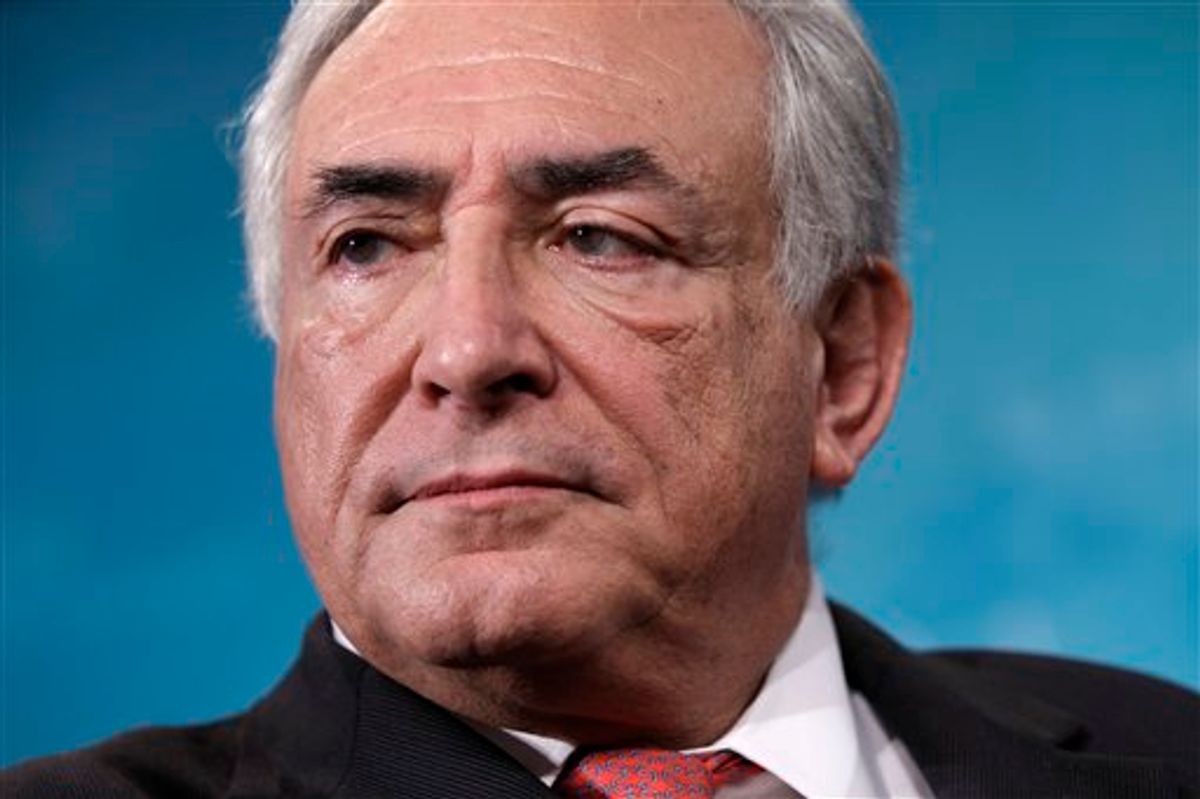Tyler Cowen, the prolific, articulate, libertarian-leaning economist who co-authors the hugely influential blog Marginal Revolution, asks how the "true economist" should react to the news that Dominique Strauss-Kahn, the managing director of the International Monetary Fund and potential French presidential candidate, has been arrested on charges of sexually assaulting a maid in a New York hotel.
After all, DSK had a very strong incentive not to commit the crime, including his desire to run for further office in France, not to mention his high IMF salary and strong network of international connections. So much to lose.
Should the "real economist" conclude that DSK is less likely to be guilty than others will think? .... How many economists seriously use the concept of incentives -- more than non-economists do -- to understand everyday events? Is the notion that incentives predict individual behavior actually so central to economics? Should it be?
Cowen acknowledges that he "always wonders" about questions like these when he contemplates news accounts of "shocking" crimes. That's no surprise: Cowen wrote an entire book about incentives and personal behavior, "Discover Your Inner Economist: Use Incentives to Fall in Love, Survive Your Next Meeting, and Motivate Your Dentist." (I was particularly taken with the section in which he evaluates the incentives involved in whether men should put the toilet seat down after urinating.)
Presumably, the fact that Strauss-Kahn is himself an economist makes his disregard for powerful incentives even more stupefying to a fellow dismal scientist. But for non-economists the notion that people do irrational things is utterly un-shocking and the premise that because Strauss-Kahn had "so much to lose" he is less likely to be guilty of the crime he is accused of is ridiculous. In this formulation "real" economists are better defined as economists who just don't understand actual human nature. Without prejudging Strauss-Kahn, we know that powerful men do stupid, self-destructive things for sexual reasons every single day. If we're looking for a science-based explanation, it probably has more to do with evolutionarily induced alpha-male reproductive mandates than any rational weighing of pros and cons.
But one suspects that for economists who are wedded to the idea that incentives are the arbiter of human destiny, being forced to contemplate the evidence that people can act at cross-purposes to their own interests is akin to staring into the abyss. What if this wasn't just true on an individual level -- what if people acted irrationally en masse? Think about the potential disasters we could face -- voters might do something nutty like electing legislators who simultaneously pass deficit-busting budgets while refusing to allow the government to pay the ensuing bills!
I jest. I think the reasonable economist, if not the "real economist," would be on safe ground to argue that incentives matter in the aggregate, but become less and less useful as you approach the individual level. In other words, it's probably safe to generalize that most men appropriately appreciate the negative consequences of getting arrested for rape. (Or, to put it in less economic terms, most men aren't pathological monsters.) But while Tyler Cowen may lean toward a worldview that evaluates every human action in terms of incentives more than the average economist, I think his reaction to this particular news event is indicative of the cognitive dissonance that defines economics as a social "science." Economists often try to predict how people will behave as economic actors, and they'll use an awful lot of math to try to get at the heart of it. But people are messy. We often act against their own interests, and we cannot, individually, be reduced to equations. We might be able to map our own genome and trace our evolutionary tree, but dang it, understanding why we run up our credit card debt or commit shocking crimes or want our Medicare and Social Security benefits to remain intact but keep electing politicians who promise to cut our taxes just doesn't compute.
The truly real economist is the one who gets that.

Shares